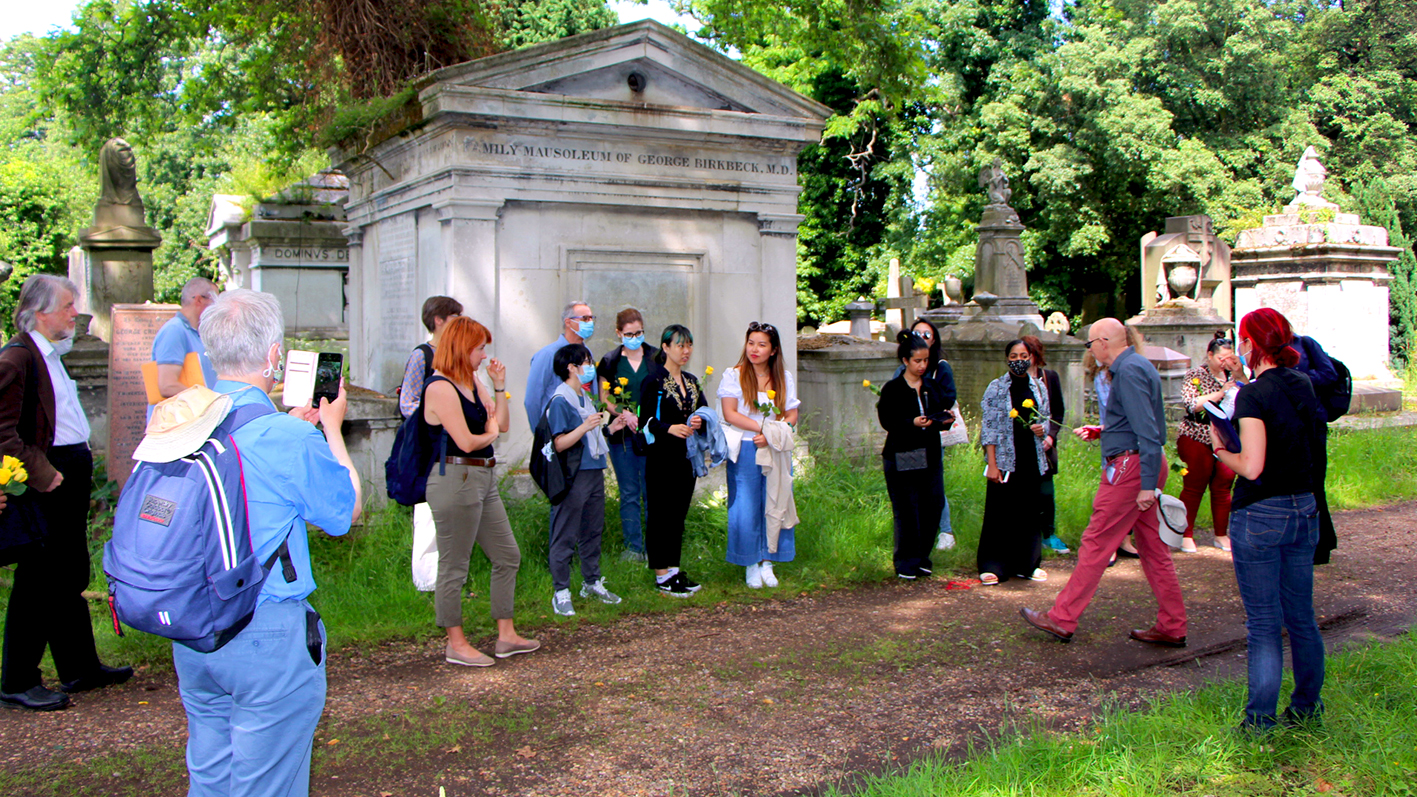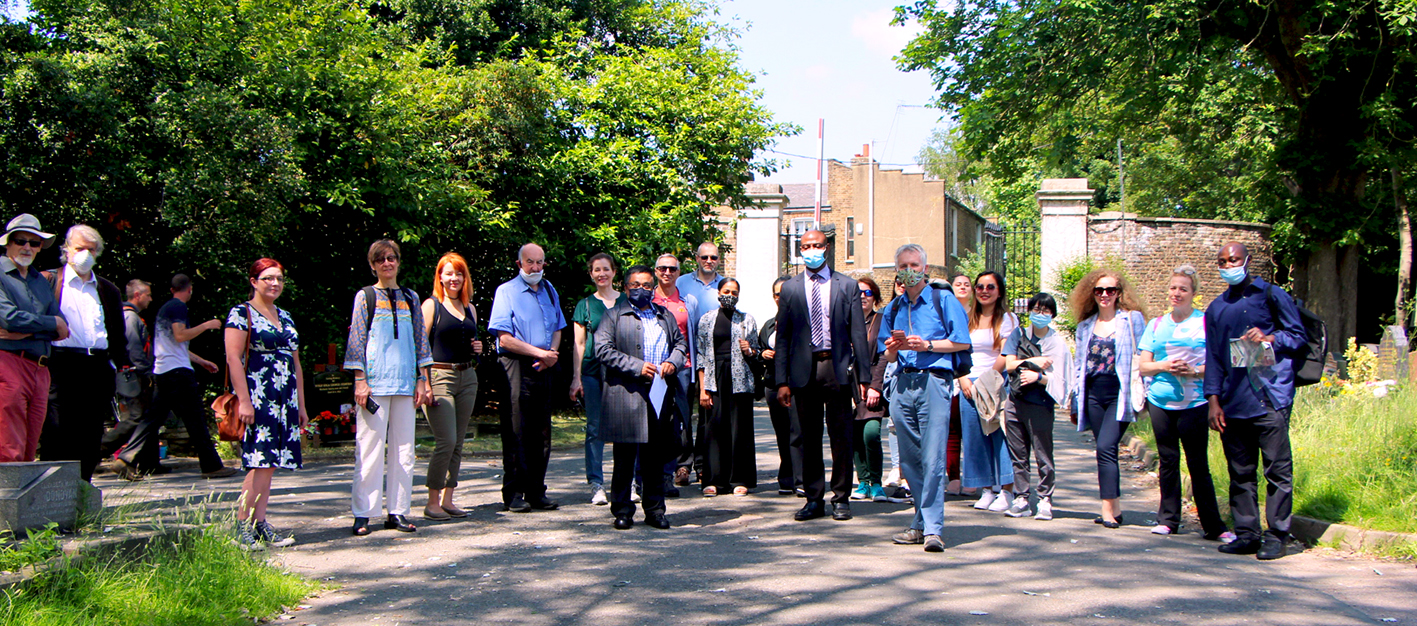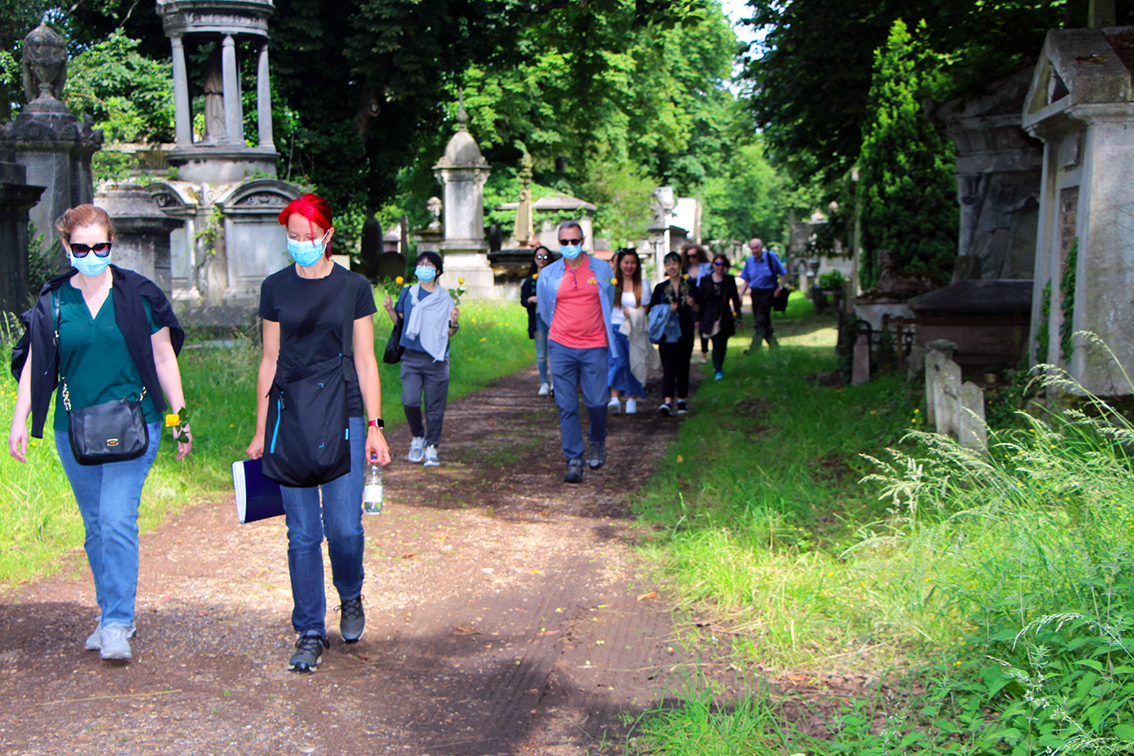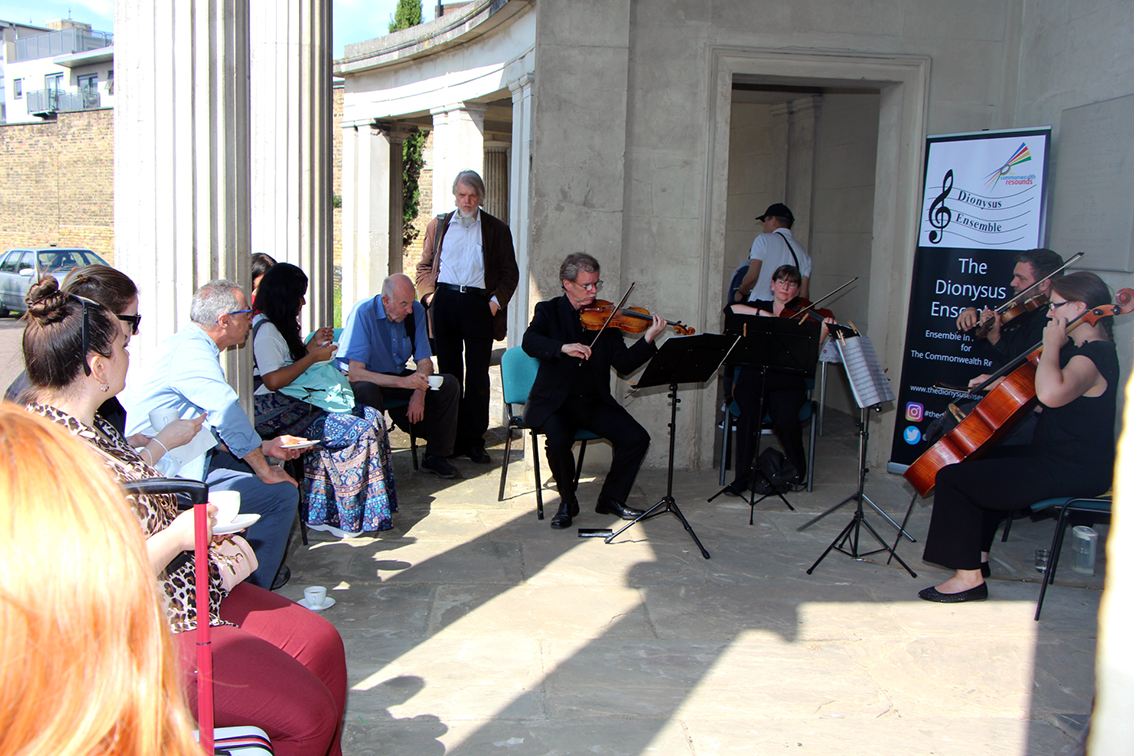Cecilia Danielsson, BA Linguistics and Language student, writes about the science-themed summer event, that brought Birkbeck international students together to learn more about the College’s history by visiting the final resting place of its founder, George Birkbeck.

Birkbeck international students’ stand by the Birkbeck family mausoleum at the Kensal Green Cemetery. Credit: Harish Patel, School of Science
After over a year of meeting in the ethereal cyberspace, the glimmer of spending time face-to-face was a welcome return to normal, even if we all had to re-learn our interpersonal skills again! Fortunately, these skills were all firmly intact and everyone was delighted to engage in real conversation.
The weather was kind to us with slabs of blues and green, contrasting sharply with grey stones of the graveyard all reignited by the sun. It was the perfect day to celebrate George Birkbeck, and a chance to reflect on the extraordinary vision actioned to bring higher education to the working people of London. Birkbeck has been transforming lives since 1823, and the university has transitioned through various colourful identities through its long and extensive history. In 2023, Birkbeck will be celebrating its 200th anniversary.
Developed as an engineering and science faculty, the tour of Kensal Green Cemetery was a chance to not only pay respects to the University founder, but also to consider works in Literature, Botany, Languages and Royalty from notable pioneers in science, such as Brunel and Babbage.

Students gather for a group photo at the Kensal Green Cemetery. Credit: Harish Patel, School of Science
The enthusiastic tour guides were rich in their knowledge of tombstone architecture and the famous residents of this corner field in West London. For the architecture fans among us, the tour talk referenced some of the neogothic styles of concrete structures, as well as Egyptian and post-modernist designs.
Glancing around there were parallels with the built environment we are familiar with in the London buildings around Bloomsbury, including Birkbeck’s luminous neighbour, the British Museum. Once we had paid respects to the family of George Birkbeck, there was a chance to reflect on the requirement for institutions to continue to support access to cutting edge research-led higher education and to London, and the need for lifelong learning.
After our meandering weave through the stony paths and tall green trees, it was time for afternoon tea. With a delicious spread of lovingly home-baked fayre by the very kind hosts of Kensal Green Cemetery, it was time to kick back and reflect upon our day in the sun to the soundtrack of the talented The Dionysus Ensemble and the opportunity to thank the organiser of the event, Professor Sanjib Bhakta, Assistant Dean (Internationalisation and Partnerships) who put together a memorable day for us all.
Further information


